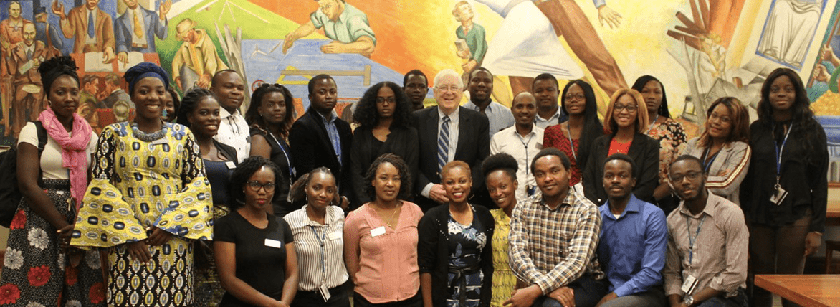International Students: Stranded in the Time of COVID-19

Three weeks ago, Drake University’s campus was home to 111 international students from 42 countries. Following the global pandemic declaration and Drake’s recent announcement to finish the semester in a remote learning format, we have six international students remaining in the dorms and another 65 living in Greater Des Moines (DSM). The decision for these students on whether to stay or go was not an easy one. Considerations such as suspension of visa and consular services, travel bans and restrictions, border and airspace closures and uncertainty around immigration status weighed against their strong desire to return to their families. In a world health crisis, where U.S. students may have the privilege of returning home to a nearby Iowa town or another state within the U.S., international students are faced with a series of dilemmas. “Stay home,” the newspapers and media say. What is home for these students, who have left their countries of birth and families? Home now becomes something more fluid, more immediate. It calls upon us as leaders to look beyond the bounds/limits of institutional infrastructures and resources and to rely on our strong connection with the DSM community.
Mandela Washington Fellowship for Young African Leaders
Many of you are aware of Drake University as a global knowledge hub, developing global talent and bringing a global perspective to our campus and community. For the past four summers, Drake (alongside roughly 30 other U.S. institutions) has hosted 25 young African professionals selected from a pool of over 40,000 emerging leaders from across sub-Saharan Africa. Mandela Washington Fellowship for Young African Leaders hosted at Drake University annually works in partnership with over 30 DSM businesses and organizations to provide hands-on leadership in business experiences. This program has profoundly strengthened our relationship to local businesses and organizations, and has given strengthened Iowa’s connection to Africa. Des Moines and Iowa have “shown up” to welcome these individuals and create a meaningful experience for them, and we thank you.
For the 71 international students remaining in DSM this semester, our staff has worked with extraordinary commitment and creativity to sustain a sense of community so far from home. We have begun virtual coffee hours, providing a chance for international students to get to know faculty, staff and community members, as well as hosting social activities in the form of online games, Netflix Parties or other relaxing social opportunities.
How the DSM Community Can Help
To you, our partners in community, we put forth a “call to action” in support of our international students:
- Provide virtual tours of businesses in the area
- Join us for a virtual coffee hour
- Sign up for the American Family Friendship Program! This is a community run, non-residential program where families are paired with international students to offer support, friendship, and community. Such meetings could easily be virtual until social distancing restrictions are lifted, and would be immensely appreciated. Contact kendra.hossain-morehead@drake.edu for more information or for an application form.
- Donate to the International student relief fund! International students have a specific difficulty when it comes to finances during times like these. They cannot work off campus for compensation during their degree program, and many on-campus jobs are no longer feasible for international students. This has placed a hardship on our students in paying rent and purchasing necessities.
Our immediate work is to ensure the safety and well-being of those students not able to return to their countries of origin. As DSM is home to organizations, institutions and businesses made up of caring visionaries who value being part of a global community, we all need to “show up” for our future leaders, now more than ever.
You can count on The Partnership to continue to share accurate and fact-based updates as well. See more on COVID-19 here.
Find these tips useful? Find more business tools and information by visiting the Business Resources page.
Annique Kiel, MA and Sue J. Mattison, PhD
Annique Kiel is executive director of global engagement and international programs at Drake University. She received her MA in French Studies from the University of Wisconsin-Madison.
Sue Mattison is provost at Drake University. A native Iowan, she received her PhD in epidemiology from the University of Iowa.